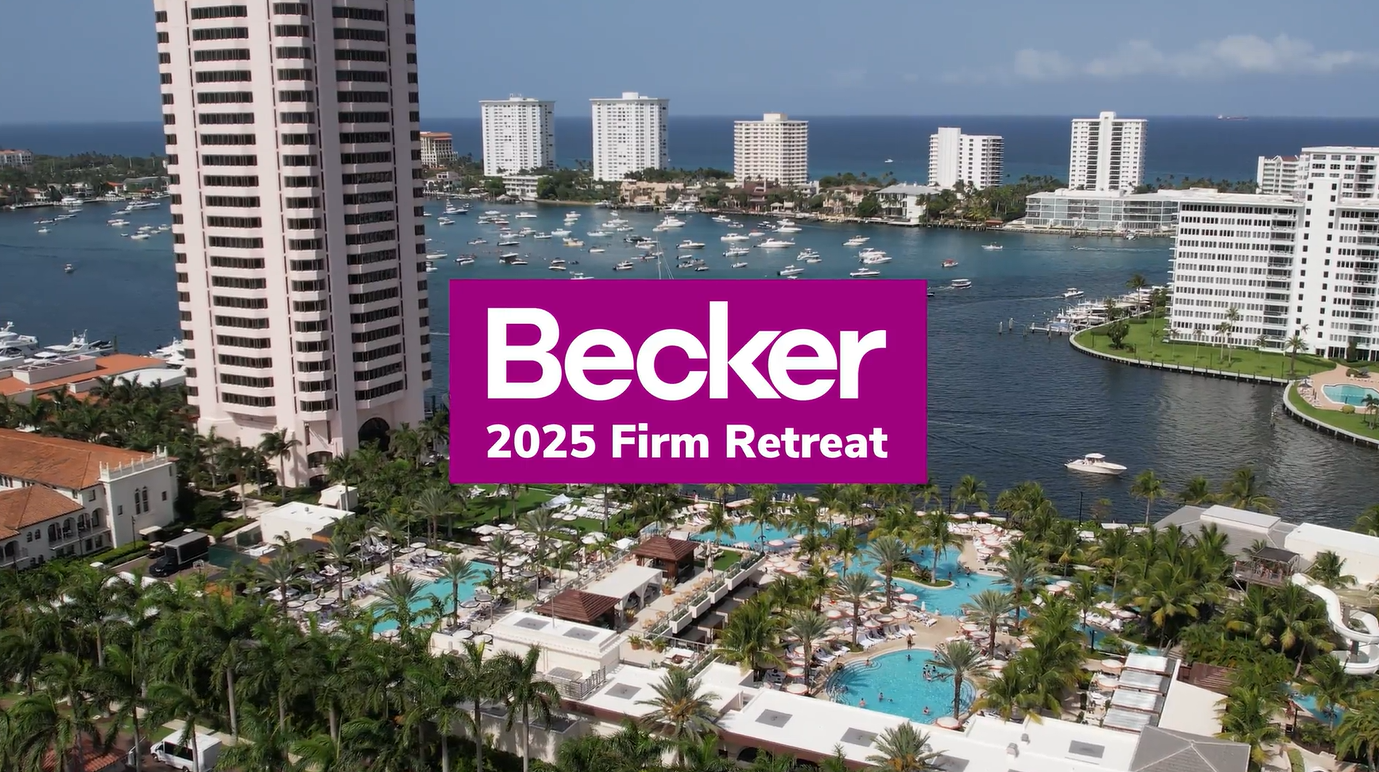
In June 2025, Becker professionals from around the world gathered at the renowned Boca Raton Resort for the Firm Retreat that is held every two years. This highly anticipated event combined professional development, meaningful connection, and insight from some of the most accomplished voices in law, mental health advocacy, […]









